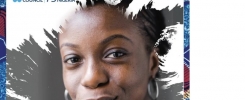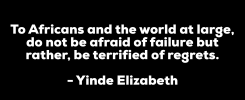Is poverty sexist? I think not but statistics on poverty in Nigeria have shown otherwise. In 2018, a study on the feminisation of poverty in Nigerian cities, written by Adunola Adepoju, indicated that 70 percent of poor Nigerians are women. Indeed, more than half of rural women live below the internationally defined poverty line, lacking access to basic education, decent nutrition, adequate health, and social services. They perform the majority of the work in food processing and dominate the rural and urban informal sectors. Yet less than 20 percent of women have a stable source of income to cater for their families.
At 20, I have created avenues for financial inclusion through vocational trainings for over 100 women, secured $2,000 in funding to help set up beneficiaries on their entrepreneurial journey, adopted three public schools in Akoko local government in Ondo State, Nigeria to provide mentoring and cross-exchange of learning opportunities for the students to improve their quality of education.
My story began when I got a last-minute scholarship to help pay for my university tuition after 2 years of staying at home in 2017. I grew up in a village in Odigbo Local Government of Ondo State with parents who are predominantly farmers and tasted poverty first hand.
So, for that one chance at life which the scholarship gave, I developed the feeling of gratitude, accompanied by an urge to give back in every way possible.
On resumption to the university, Adekunle Ajasin University, I joined Enactus — it is the world’s largest community of students, business experts, and professionals who use entrepreneurship as a tool for value creation and human development — and I became my school’s first female team lead.
In 2018, we identified over 500 poor and unemployed women who were willing to learn a skill and it became necessary to proffer a solution to the unemployment and poverty faced by women in Ondo state.
To solve this problem and change a system that raised me, I created Rebirth, an ambitious project which aims to achieve nine of the UN global goals which are:
- No poverty
- Zero hunger
- Quality education
- Gender equality
- Decent work and economic growth
- Industry, innovation, and infrastructure
- Sustainable cities and communities
- Peace, justice and strong institutions
- Partnerships for the goals
We created an opportunity for financial inclusion for low and no income-earning women in Ondo state by providing them with access to skills training on fashion designing; featuring entrepreneurship, gender equality, and mindset reorientation. Rebirth had to combat socio-cultural beliefs prevalent in the community pertaining to women’s financial independence.
We moved the project forward by establishing a women’s hub which became a community of women who serve as support and inspiration for one another in their entrepreneurial journey. We also used a train-the-trainer approach to make it better by ensuring that past beneficiaries pass on the skills learned to new beneficiaries.
To overcome the challenges faced in the enterprise, I took courses on businesses in emerging economies and launching breakthrough technologies with Harvard Business School online platform.
I also secured a $2,000 funding from the Wish Wall Foundation to empower the trainees with personal sewing machines and materials of their own. To date, we have gone to eight communities in Akoko, Ondo State, trained 142 women reaching over 2,000 persons indirectly impacted.
The effects of Rebirth include an improvement in the standard of living for these women, reduction in poverty, the achievement of gender equality and the creation of sustainable employment opportunities. The women were also able to enroll their children in school, thereby improving their quality of education and bringing about a large reduction in child hawking which was a common occurrence in the community.
Being a Law student, I founded Coalition for Legal Education and Rights Protection, an online community of law students and practicing lawyers dedicated to educating the entire populace about their fundamental human rights and how to access free legal aid upon the violation, while using social media as an avenue. This platform is contributing to education and peacemaking and it helps law students gain access to professional experiences before furthering to law school.
Our world is so diverse, there’s the rich, the poor, the beautiful, the ugly but in the midst of this chaos and disorganization is something beautiful and that is us — humans. We have the power to create and inspire. We can through collective actions, contribute to sustainable development and until we realize that we are the solutions we seek, we will fail to realize the value of who we are.
[su_divider text=”by Oluwadamilola Akintewe” divider_color=”#000000″]
How do you cope in this fast-paced world when you traveled out of your home town, Ondo for the first time to visit Lagos at 15, got a smartphone at 18 and finally saved enough for a laptop at 20? It’s weird, right? Almost unbelievable but it’s true. I am that girl who saw a glimpse of what the world had to offer and wasn’t ready to let go.
In my work as a social entrepreneur, I have created avenues for financial inclusion for women, helped girls in rural communities of Ondo State get re-enrolled in school, provided access to mentorship for students across three public secondary schools in Akungba-Akoko, Ondo State and is raising a community of future lawyers who are ready to stand for human rights.
I’ve been recognized as an Ashoka Young Changemaker and an African Young Leader by Teennation. I am currently serving as the president of the 2020 cohort.
My philosophy is that we are the solution to everything. No external help is coming, we must take that first step to ensure development and that’s what I’m doing.
Visit Olamidamilola’s website here.


